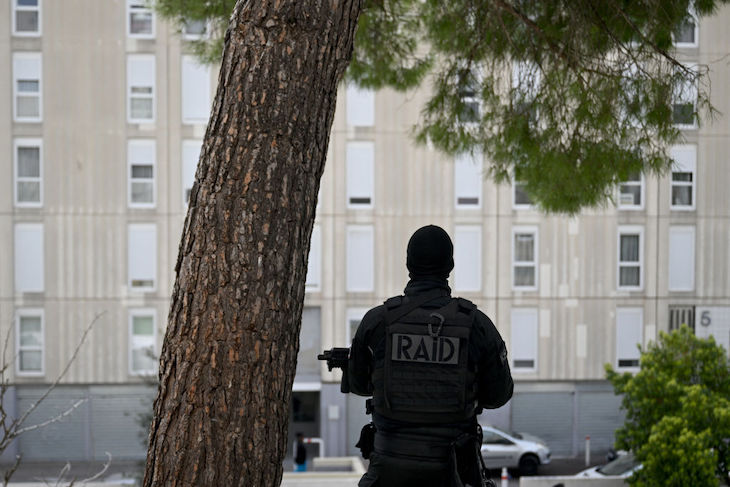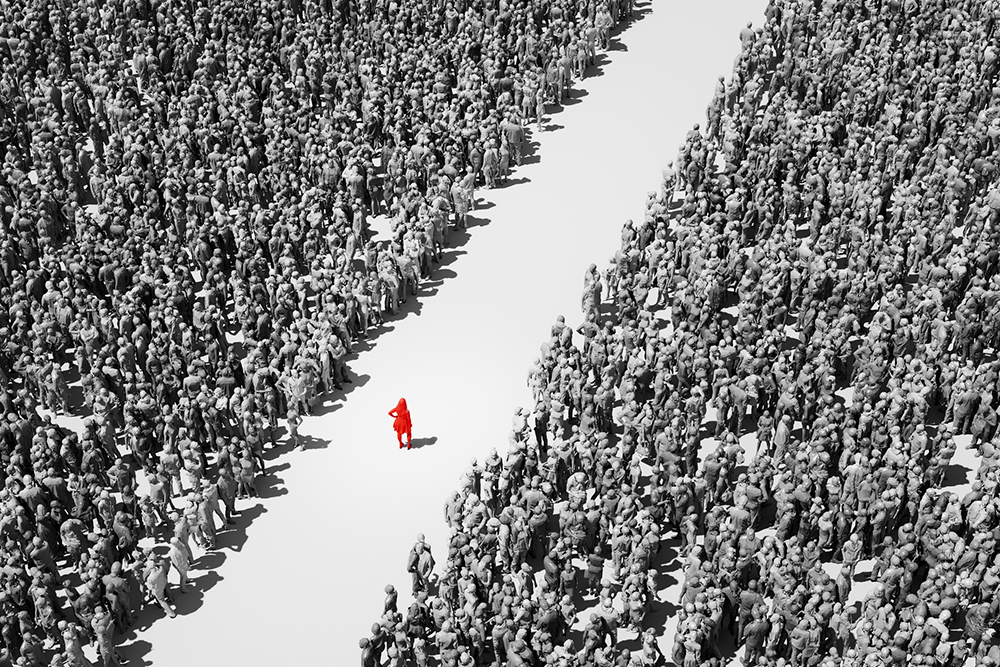France’s Interior Minister is the tough-talking Bruno Retailleau. In his inaugural declaration a fortnight ago, he hammered out his three priorities: ‘The first is to re-establish order, the second is to re-establish order, and the third is to re-establish order.’ Standing behind Retailleau was Gerald Darmanin, the man he was replacing as France’s ‘top cop’. He was also tough-talking but, like the interior ministers before him, the rhetoric had little effect on the violent lawlessness that has reached into every nook and cranny of the Republic.
The teenager was stabbed dozens of times, doused in petrol and set on fire
Within a few days, Retailleau admitted that he had been shocked by just how feral France has become; each morning, he told a newspaper, he is briefed by the police on the ‘abominable events’ of the previous evening, crimes of which ‘the media only know a tiny part’. Sometimes the crimes are so heinous they make the front pages, and often the crimes are committed in Marseille, the Mediterranean city which, according to its magistrates, is descending into a ‘Narcoville’.
Last weekend, a 15-year-old boy was caught by a rival gang as he attempted to set fire to the door of a drug dealer. He was stabbed dozens of times, doused in petrol and then set on fire. On the same weekend, a taxi driver was shot dead. The suspect in the shooting is a 14-year-old boy.
The two deaths bring to 17 the number of people shot dead this year in Marseille in drug-related violence; it is a quiet year in comparison to 2023, when 49 people lost their lives. In part, this is because of the summer Olympics, when the city was reinforced by a significant number of police to ensure the safety of visitors who came to watch the sailing events and some football matches.
But the Games are over, police have been re-deployed, and life has returned to normal for the people of Marseille. Not long before the latest killings, Franck Rastoul, the public prosecutor at the Aix-en-Provence court of appeal, issued another warning about the gravity of the crisis facing the city.
‘It is imperative that we fully understand the ravages of drug trafficking, which undermines the very foundations of our society,’ said Rastoul. Specifically, he highlighted the phenomenon of teenage killers and enforcers, who were ‘intoxicated by easy drug money’ and had a ‘total disregard for human life’.
A police officer, speaking about one teenage murder suspect, warned: ‘We’ve all lost the war, policemen, judges, social workers. Our society has produced monsters.’
The fear in France is that these ‘monsters’ are moving out of Marseille into other cities and towns. Last month in Burgundy, not far from where I live, forty rounds from an assault rifle were fired at a boulangerie during the night in an incident that is believed to have been related to a drugs’ turf war. ‘I heard gunshots in my sleep,’ said a local resident, ‘I thought I was dreaming about a war movie. When I woke up this morning, my mother told me it was real gunfire.’
Earlier this year, the French Senate hosted representatives from the Association of Rural Mayors of France and the Association of Small Villages. The agenda was devoted to how drugs are infiltrating the smallest of communities, bringing with them not just misery but also unspeakable violence. The president of the rural mayors’ association said that drug consumption has become a ‘local triviality’, despite the fact it is ‘impoverishing the population’. On Wednesday the new Justice Minister, Didier Migaud, appeared before the Senate and admitted that ‘organised crime is taking on a worrying scale’.
Some in France talk of the ‘Mexicanisation’ of the country. For the moment, at least, the situations are not comparable; no French mayor has been decapitated as was the case in Chilpancingo last week when Alejandro Arcos was murdered a week after his election. Nonetheless, the drug cartels in France are becoming more violent and more brazen. A few days ago, in Cavaillon, a town 50 miles north of Marseille, several police cars parked outside the station were firebombed. Recently the town’s police, supported by colleagues from Paris, have targeted a local estate notorious for drug trafficking.
‘Order, order, order’ is easy to say, but it’s much harder to enact in a country where successive governments have lacked the courage to confront the drug cartels.
A poll in the summer found that 70 per cent of the French believed that the best way to restore order was to send in the army. It may be time to consider such a drastic measure if France is to prevent the murders of more people by teenage ‘monsters’.








Comments